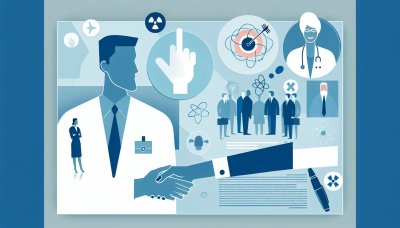Navigating the Shifting Sands: How Technology is Transforming Pharmacy Jobs

The Unexpected Influence of Technology on Pharmacy Jobs
Here’s a surprising statistic: over 60% of pharmacy technicians believe technology will significantly change their job roles within the next five years. You might think that technology means fewer jobs, right? But wait, there’s more to it than just job loss.
As someone who's worked closely with professionals navigating career transitions, I can tell you this: while certain tasks may indeed become automated, new roles are emerging that require a different set of skills. This tech disruption isn’t just a challenge; it’s an opportunity—if you know how to embrace it.
Understanding the Landscape
The pharmacy profession is undoubtedly undergoing a transformation. If you’ve been in the field for a while, you’ve probably noticed how rapidly things are changing—from telepharmacy practices to automated dispensing systems. On the flip side, this isn’t just about reducing the workforce.
Let’s look at how technology affects jobs in three distinct ways:
1. Automation: A Double-Edged Sword
Automation tools are making routine tasks more efficient, which is great for business but can feel threatening for employees. For instance, automated pill dispensers streamline the filling process, reducing the chances of errors. However, this means pharmacy technicians must adapt to managing these systems instead of simply performing tasks manually. In my experience, embracing this technology can enhance your role rather than eliminate it.
2. Telepharmacy: Expanding Horizons
Telepharmacy is another area where tech redefines the landscape. Imagine a pharmacist consulting with patients via video calls, providing medication therapy management without being physically present. This not only extends services to remote areas but also opens up new job opportunities. If you’re a pharmacist, consider brushing up on your telecommunication skills. It could be the key to staying relevant.
3. Data-Driven Decision Making
Pharmacies are collecting more data than ever before. Analytics can help identify medication trends and potential health issues among patients, allowing pharmacists to offer tailored advice. This shift means that professionals need to become adept at interpreting data and using it to inform their practice. It’s a role that requires critical thinking and adaptability—qualities that can make you stand out in the hiring process.
Bridging the Skills Gap
Now, you might be wondering: how do I prepare for these changes? It starts with being proactive about your professional development. Here are a few actionable steps:
- Invest in Training: Seek out workshops or courses on new technologies relevant to pharmacy.
- Network Actively: Connect with professionals in telepharmacy or analytics to learn about their experiences and insights.
- Stay Informed: Regularly read industry publications to keep up with emerging trends.
It’s easy to fall into a mindset of skepticism about technology, especially when it feels like it’s encroaching on our jobs. But adopting a growth mindset can transform this situation into an opportunity for advancement.
Embracing the Future
As the landscape of pharmacy changes, it’s vital to keep an open mind. Those who adapt and grow will not only survive but thrive. Let’s look at a real-world example: a technician I worked with named Jenna. Initially, she was apprehensive about the new automated system at her workplace. However, she took the initiative to get trained on the technology and eventually became the go-to person for her team. Today, she’s not just employed; she’s a leader in her pharmacy.
Final Thoughts
Change can be intimidating, but it’s also an opportunity to redefine your career. Embracing technology in pharmacy doesn’t mean losing your job; it means evolving into a new one. So, what’s your next step? How can you position yourself to not just keep up, but to lead in this new era? Reflect on this as you think about your journey in the pharmacy field.
Tags:
Blog System
Content Author


